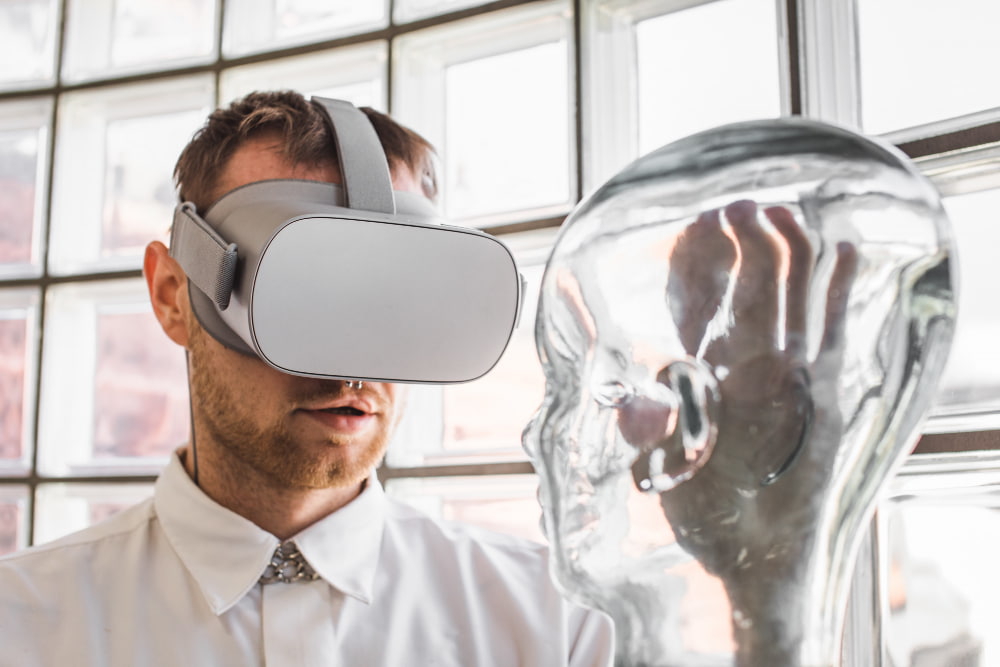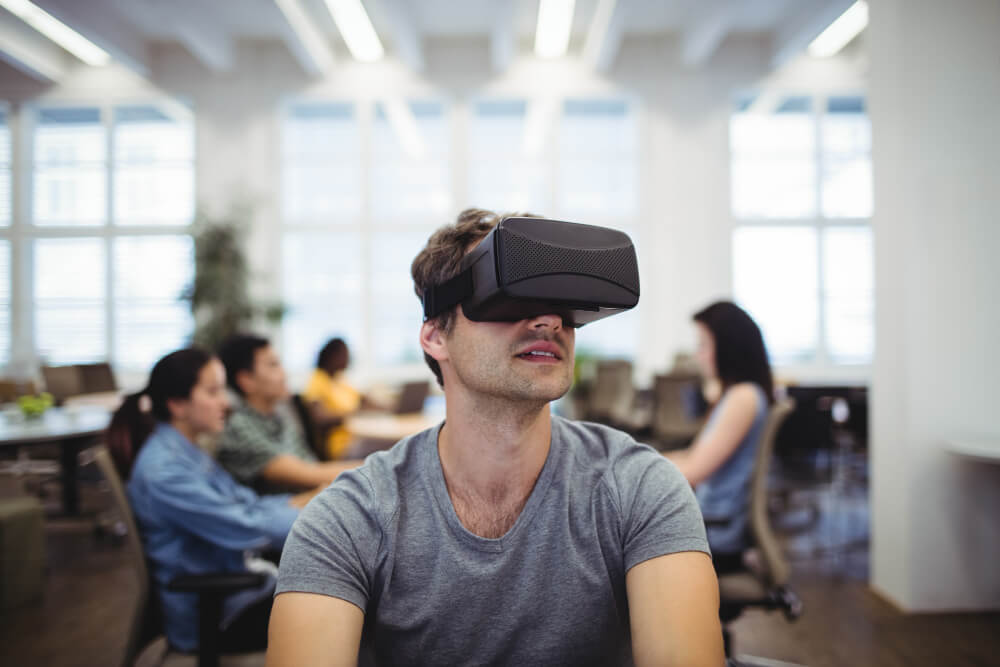VR Stats for the Training & Education Industry in 2025
Table of Contents:
The potential behind VR technology is exciting and generates a lot of buzz. But hype alone is rarely enough to convince the general public. Today, we examine some VR training statistics to determine the state of the VR education market. We’ll provide cold, hard facts and numbers to show the industry’s true face rather than relying on the marketing bubble alone.
Predicted Industry Growth
Let’s start with the statistic that gets everybody interested – that’s right, money. According to this report by Fortune Business Insights, the global VR market will grow to a total valuation of $65.5 billion by 2032, almost four times what it’s worth today. However, this projection is rather conservative, as another forecast by Precedence Research predicts the value will balloon up to $284 billion by 2034.
On top of this, projections by worldwide consulting giant PwC estimate that VR and AR have the potential to boost the global economy by $1.5 trillion over the next 10 years simply on account of the efficiency improvements the technology brings to the table.
Faster Learning
PwC also chimes in with its insight regarding VR effectiveness. In their study, they claim to have found that learning with VR is four times faster than conventional classroom training. Given VR’s inherent scalability, just imagine how much progress could be made by implementing these solutions across entire companies, hospitals, or other organizations!
Employee Satisfaction
Nothing lends itself to better and faster employee upskilling & reskilling in VR than the workforce itself demanding more training to take place using this technology. Such was the case at Intel, where a staggering 94% of employees asked to take part in more VR training modules after concluding the one they were assigned to.
Effectiveness in Varied Applications
Okay, but what about some hard data in some narrower contexts? Let’s take a look at how some VR training statistics in different industries where its potential is touted as revolutionary:
Healthcare
This small-scale study conducted at the Yale University School of Medicine Department of Surgery saw surgeons participating in a VR course on top of their standard training and compared their performance in the operating room against the control group who received no VR training. The group that practiced the procedure in VR was six times less likely to make errors compared to those who only received standard training.
Mining
In this example from the mining industry, introducing VR training has enabled workers to lower the amount of time lost due to injuries and safety risks by a staggering 43%. This showcases just how much damage can be prevented by cleverly implementing virtual reality in the workplace and that the upfront investment in the technology has incredible potential to introduce sweeping savings across your organization.
Manufacturing
Implementing VR training in the manufacturing sector has also led to significant improvements in worker performance. Studies indicate that VR-trained employees exhibit up to a 70% enhancement in performance compared to those trained via traditional methods only. This marked boost in efficiency not only elevates productivity but also underscores VR’s substantial value in manufacturing environments.
The Takeaway
If you ever needed more convincing as to why the VR education market is on the upswing, hopefully, this article provided reason enough. The broader application is written in the stars for the future of VR learning, given its continued successes. The training & education industry is likely going to see a noticeable boom in the near future as demand increases for state-of-the-art training experiences for professionals in many fields.
Want to remain ahead of your competition? Don’t wait to capitalize on the advantage of VR – start today! Contact us at Mazer Trainer to find out what our technology can do for your business goals and training needs!

Author: Rafał Siejca
Rafal has over twenty years of corporate experience, including roles at Millennium Bank, Comarch, and leading software teams at PZU, one of Europe’s largest insurance companies. As one of Poland’s few true VR experts with a decade of experience, he ensures timely, high-quality project delivery as CEO and CTO.










